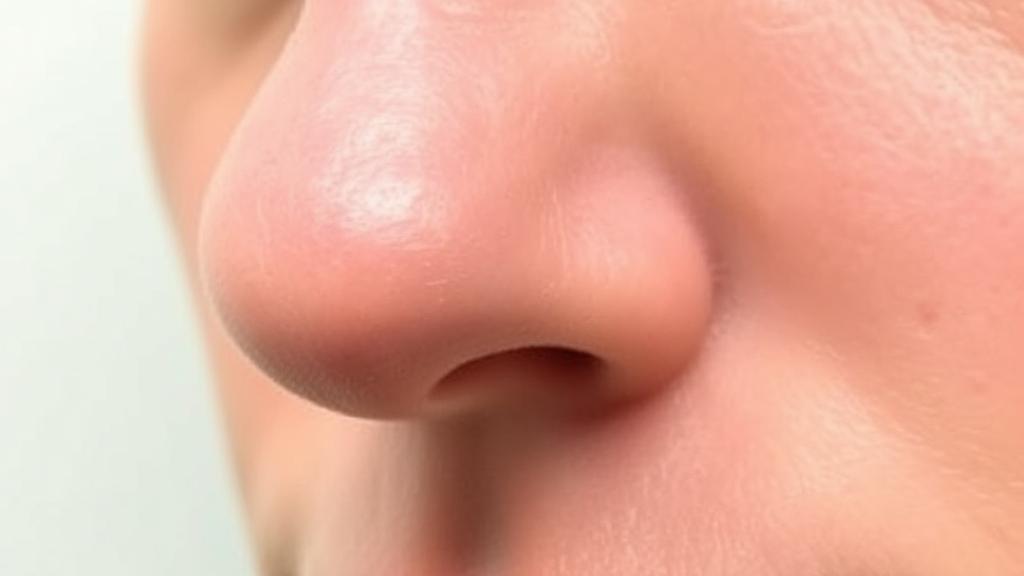Understanding the Causes of a Bump on Your Nose
Common Causes
1. Acne and Related Conditions
- Whiteheads: Closed clogged pores
- Blackheads: Open clogged pores
- Pustules: Inflamed, pus-filled lesions
- Boils: Painful, pus-filled bumps from bacterial infection
2. Medical Conditions
- Rhinophyma: A severe form of rosacea affecting the nose
- Wegener's granulomatosis: An inflammatory blood vessel condition
- Sarcoidosis: An inflammatory disease affecting multiple organs
- Nasal polyps: Soft tissue growths inside nasal passages
- Sebaceous Hyperplasia: Enlarged sebaceous glands causing small, yellowish bumps
3. Trauma and Injury
Common causes of injury include:
- Sports accidents
- Vehicle collisions
- Falls
- Physical altercations
4. Genetic Factors
Many people naturally develop nasal bumps during adolescence due to inherited facial features, particularly common in certain ethnic groups.
Types of Bumps
Temporary Bumps
- Acne
- Insect bites
- Minor injuries
- Allergic reactions
- Ingrown hairs
Permanent Bumps
- Bone irregularities
- Cartilage deformities
- Scar tissue from previous injuries
Treatment Options
Home Remedies
- Apply warm compresses to reduce inflammation
- Keep the area clean and dry
- Avoid picking or squeezing the bump
- Use over-the-counter treatments containing benzoyl peroxide or salicylic acid
- Consider hydrocortisone cream for inflammation
Medical Treatments
-
Conservative Treatment
- Ice packs for recent injuries
- Anti-inflammatory medications
- Topical treatments
-
Medical Intervention
- Prescription medications
- Steroid injections
- Antibiotics for infections
-
Surgical Options
- Rhinoplasty
- Septoplasty
- Cartilage grafting
When to Seek Medical Attention
Consult a healthcare provider if you experience:
- Sudden appearance of a bump
- Pain or tenderness
- Difficulty breathing
- Changes in size or color
- Associated symptoms like nosebleeds
- Fever or signs of infection
- Persistent or growing bumps
- Painful or infected bumps
Prevention Tips
- Wear protective gear during sports
- Use proper sun protection
- Maintain good nasal hygiene
- Treat underlying skin conditions promptly
For more information, visit:
- American Academy of Dermatology
- Mayo Clinic's guide on nasal polyps
- American Academy of Otolaryngology
- National Institute of Arthritis and Musculoskeletal and Skin Diseases
"Not all nasal bumps require medical intervention. Some may resolve on their own, while others might be permanent without treatment." - American Academy of Otolaryngology
